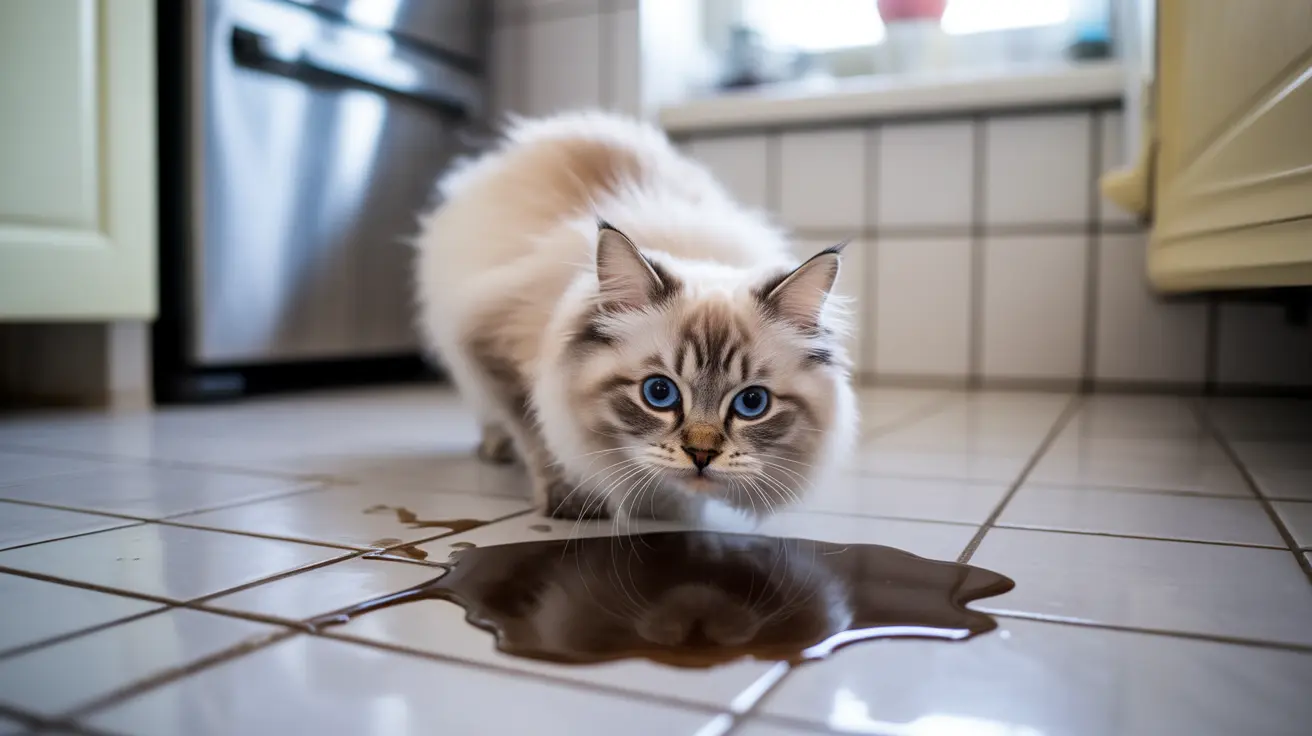Coffee is a beloved morning ritual for millions of people, but when it comes to our feline friends, this popular beverage can be extremely dangerous. As a responsible pet owner, it's crucial to understand why cats and coffee don't mix and what to do if your cat accidentally consumes caffeine.
In this comprehensive guide, we'll explore the risks of coffee consumption in cats, recognize the symptoms of caffeine toxicity, and learn the immediate steps to take if your cat drinks coffee.
Why Coffee Is Dangerous for Cats
Cats are particularly sensitive to caffeine, which is classified as a methylxanthine compound. Their bodies cannot efficiently process this stimulant, making them much more vulnerable to its toxic effects than humans. Even a small amount of coffee can trigger serious health complications in cats.
Coffee also contains theobromine, another methylxanthine that's toxic to cats. Combined with caffeine, these compounds can create a dangerous cocktail that affects multiple body systems, including the heart, nervous system, and digestive tract.
Understanding Caffeine Toxicity in Cats
When a cat ingests coffee, the caffeine is quickly absorbed into their bloodstream. Unlike humans, cats lack the necessary enzymes to properly metabolize caffeine, leading to a rapid build-up of toxic compounds in their system. This can result in severe symptoms within just 1-2 hours of consumption.
Signs and Symptoms to Watch For
The severity of symptoms depends on the amount of coffee consumed and the size of your cat. Common signs include:
- Restlessness and hyperactivity
- Rapid breathing and elevated heart rate
- Vomiting and diarrhea
- Muscle tremors or seizures
- Increased thirst and urination
- In severe cases, collapse or coma
Immediate Actions If Your Cat Drinks Coffee
If you catch your cat drinking coffee or suspect they've consumed a coffee-based product, time is of the essence. Contact your veterinarian or pet poison control immediately. Don't wait for symptoms to appear, as early intervention significantly improves the chances of a positive outcome.
Treatment Options
Veterinary treatment typically involves:
- Inducing vomiting (if ingestion was recent)
- Administering activated charcoal to prevent further absorption
- Providing IV fluids for hydration and toxin removal
- Monitoring vital signs and treating symptoms
- Medications to control tremors or heart irregularities
Prevention and Safe Alternatives
The best approach is prevention. Keep all coffee products, including grounds and beans, stored securely away from your cat. Clean up spills immediately, and never leave coffee cups unattended where curious cats might investigate them.
Instead of sharing human beverages, provide your cat with fresh, clean water and consider pet-specific treats designed for feline enjoyment. Some cats enjoy cat grass or catnip-infused water as special treats.
Frequently Asked Questions
Can cats have coffee or any caffeinated products safely?
No, cats should never consume coffee or any caffeinated products. Even small amounts can be toxic and potentially life-threatening due to their inability to metabolize caffeine effectively.
What symptoms should I watch for if my cat accidentally drinks coffee?
Watch for restlessness, rapid breathing, elevated heart rate, vomiting, diarrhea, muscle tremors, and increased thirst or urination. These symptoms typically appear within 1-2 hours of consumption.
How dangerous is caffeine poisoning in cats and how quickly do symptoms appear?
Caffeine poisoning is very dangerous for cats and can be fatal if untreated. Symptoms usually appear within 1-2 hours and can last 12-36 hours, depending on the amount consumed.
What should I do immediately if my cat consumes coffee or caffeine?
Contact your veterinarian or pet poison control immediately. Don't wait for symptoms to develop, and don't try to induce vomiting unless specifically instructed by a professional.
Are coffee-flavored foods or coffee grounds also toxic to cats?
Yes, all coffee products, including grounds, beans, and coffee-flavored foods, are toxic to cats. The caffeine content in these items can be even more concentrated and dangerous than liquid coffee.
Remember, when it comes to cats and coffee, it's always better to be safe than sorry. Keep all caffeinated products away from your feline friends and ensure they have access to appropriate food and water sources designed specifically for cats.






